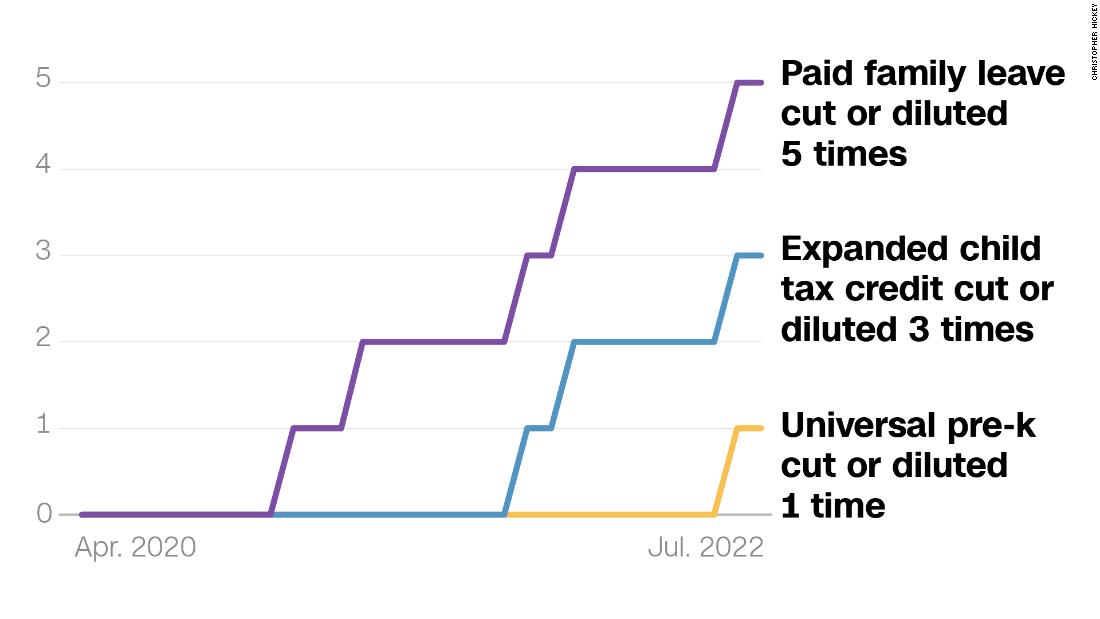The Democrats’ ambitious plans at points included universal pre-kindergarten, lower child care costs, paid family and sick leave and the enhanced child tax credit, among other provisions, but those were ultimately eliminated during negotiations. Those cuts became the ninth time in just two and a half years where proposed legislation aimed at helping women and families have been removed, according to a CNN analysis of data from the Congressional Budget Office and Congressional Research Reports.
Paid family leave alone has been trimmed down or dropped five different times since March 2020.
The frustration among the lawmakers working to include these provisions has been palpable.
“We’re not going to let one man tell all the women in this country that they can’t have paid leave,” said Sen. Patty Murray (D-WA) after negotiations with Sen. Joe Manchin (D-WV) seemed to eliminate the provision from the Build Back Better Act in 2021.
See a history of these setbacks:
March 2020: Families First Coronavirus Response Act (CARES Act)
Ultimately, any bill including universal pre-K, paid family leave and/or an expanded child tax credit needs to win over the moderate senators Joe Manchin and Kyrsten Sinema (D-AZ).
Spring 2021: American Rescue Plan and American Families Plan
Both Sens. Manchin and Sinema objected to the bill’s $3.5 trillion price tag.
Fall 2021: Build Back Better
2022: Inflation Reduction Act
Advancing these social safety net provisions has also been complicated by the enormous economic and political upheaval since BBB was first introduced.
Public attitudes towards these social reforms have shifted over the past year.
In a CNN poll from January and February, 8% of respondents said “expanding access to affordable child care” was the most important problem for the government to address. By comparison, only 1% said “coronavirus.”
In a July poll, after five months of soaring prices, the Russian invasion of Ukraine and multiple mass shootings, 38% of Americans cited inflation and fewer than 1% said the cost of child care when asked the biggest economic problem facing families.
According to a 2021 UNICEF report on national childcare policies, “The United States is the only rich country without nationwide, statutory, paid maternity leave, paternity leave or parental leave.”

